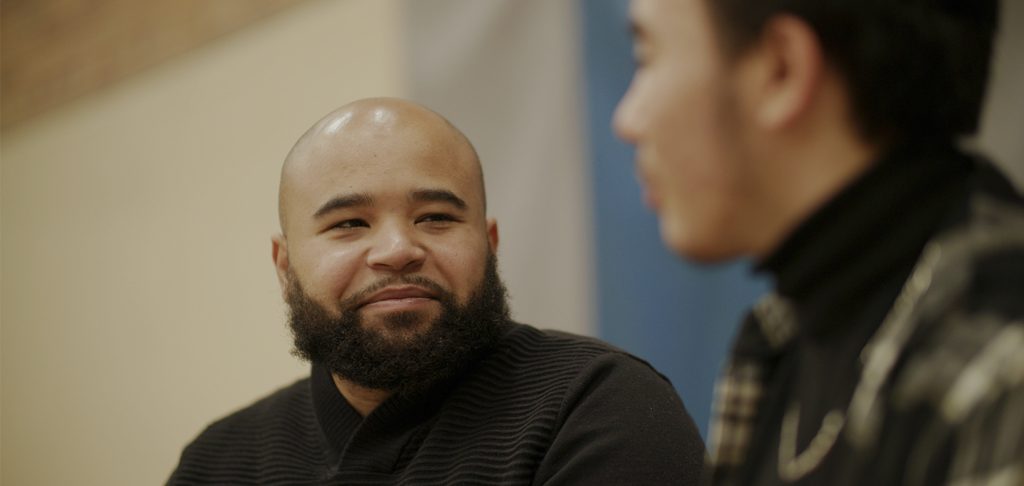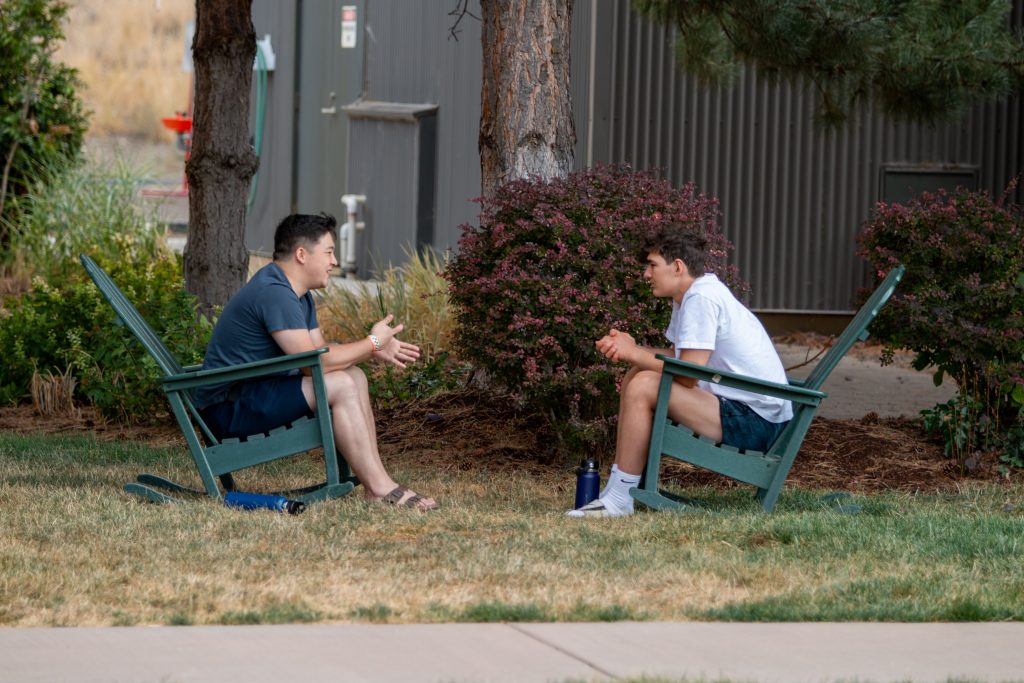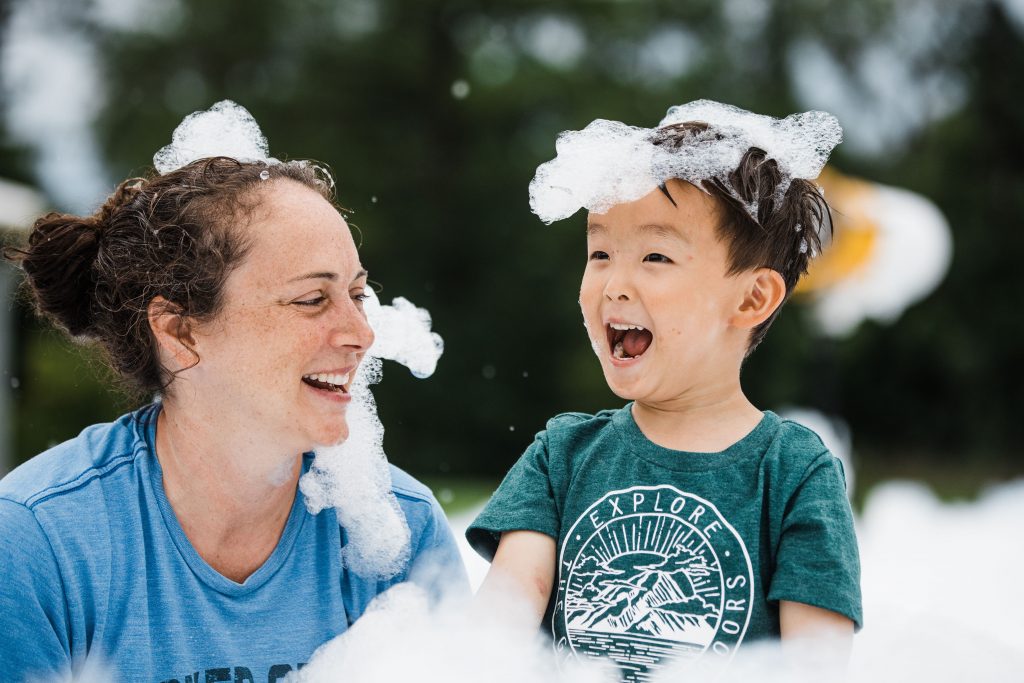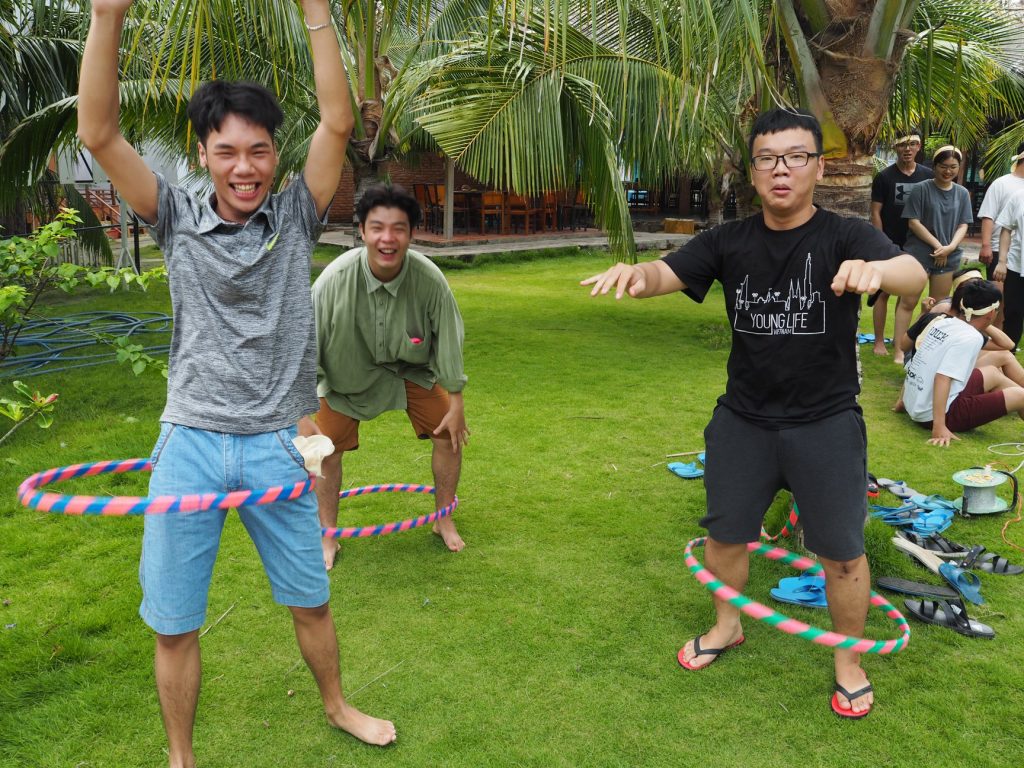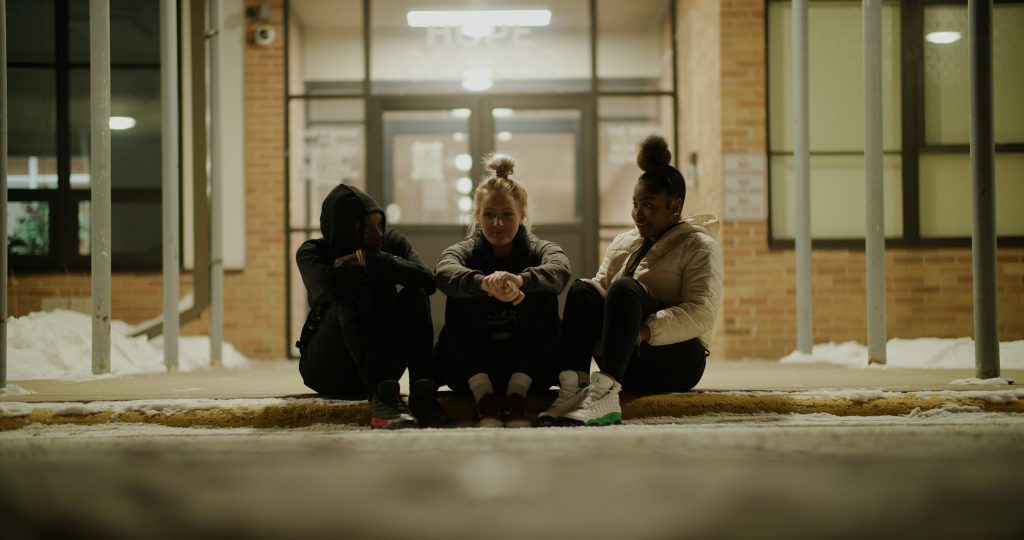You’re not good enough. You’ll never be skinny enough. Strong enough. Pretty enough. Smart enough. Funny enough. You’ll never measure up to what the world needs of you. No one will notice the value you bring to this world. You’re not enough.
These were all lies I believed at one point or another in my teenage years. Until freshman year of high school, I was one of the tallest kids in my grade and always felt out of place with my second-hand outfits and frizzy hair. It only became worse when I got braces in eighth grade.
It didn’t matter how hard I tried. There was always someone smarter than me or someone better than me on the school’s basketball team. And there was no chance of taming my wild curls to look sleek and straight like all the other girls who seemed to get all the attention from boys.
I thought things would get better when I went to college. There were more than 30,000 people there. Surely that meant less of a pecking order than my small, private Christian school, right?
Wrong. Instead, the lies morphed to fit my new stage of life. I didn’t feel good enough if my campus tour reviews weren’t glowing. I felt inadequate if I didn’t have as many relationships with high schoolers or get as many laughs from my club skit as my Young Life teammates. Unsurprising, that inner critic became even louder when I ventured into the dating world. And then again when I was let go from a job that had been a huge part of my life. It followed me into marriage, into parenthood, into friendships and is even trying to interrupt me as I write this.
How much louder are those lies for kids and teens in Generations Z and Alpha, who are more exposed to the world’s standards and public opinion than any generation before them?
In a recent study of more than 7,200 adolescents from eight countries, Young Life found that more than one-third of all Gen Zers are not confident they are “worthy of being loved.” They also found that “friends and family are the primary sources adolescents will turn to for help, consistent across countries.”
What does this mean for those of us who care about the next generations? It means we have an incredible opportunity to help shred lies of insufficiency that teens and kids are hearing. It means that they’ll listen to us trusted adults when we remind them that they have inherent value as human beings.
So where do we begin?
- Create Safe Spaces
Kids and teens need to know that they are loved and accepted for who they are, not just for their achievements or behavior. When you express unconditional love for them, it helps them understand that their worth is inherent and not contingent on their successes or failures.
Encouraging open and honest communication also creates spaces where kids feel safe to express their thoughts and feelings without fear of judgment or repercussion. Listening actively and empathetically to their concerns validates their experiences and emotions.
When adults are consistent in these areas, it creates a sense of stability. When adults are present and dependable, teens feel more secure and are more likely to develop a sense of trust and belonging.
- Encourage Self-Expression
Kids and teens need to explore and express their unique identities. When they feel safe to be who they are without judgment, it significantly enhances their self-esteem. So support their interests! Encourage them to pursue activities they are passionate about, whether it’s sports, art, music, science, or baking. Supporting their hobbies and interests shows that you value their individuality and talents.
Another way to encourage them to be themselves is by asking them to express their opinions and take part in decision-making processes. This helps them feel respected and valued. It teaches them that their voice matters.
And lastly, embrace and celebrate differences in culture, background, and perspectives. Teaching the next generations to appreciate diversity not only fosters their self-acceptance but also cultivates empathy and respect for others.
- Model Positive Self-Talk
The way we talk to ourselves has a profound impact on our self-esteem. A lot of my self-talk (before a handful of therapy sessions in my 20s) was shaped by the way I heard my mom and other women in my life talking about themselves. Unfortunately, those voices reinforced the lies of inadequacy that said my outward appearance gave me value and that it needed to be skinny and athletic (both are great shapes to be!).
There are already so many voices in the lives of Gen Zers and Gen Alpha, thanks to the technology of today, but by modeling positive self-talk and self-compassion, we can teach the next generations to treat themselves with kindness and respect.
The same is true of the way we speak about others and about difficulties in life. When they hear adults practice gratitude and optimism, they are more likely to do the same in their times of challenge. We can do this by helping them reframe negative thoughts and encouraging them to question the validity of criticisms.
- Focus on Growth
So much of what we do today is against the measurement of outcome or productivity. Did you succeed? How much did you get done? Were you better than your competition? When we focus, though, on the value of effort and growth, we help kids understand that their worth is not tied to their performance.
So praise their efforts, not just their results. You’ll help them appreciate the process of learning and growing and not feeling like they always have to succeed. Sure, feedback is needed to help them grow, but even that can be an opportunity to reassure them that you recognize their attempts and care for them.
You can do this by layering your feedback. Start with an affirmation, followed by what they could have done better, and then another piece of encouragement. This type of growth mindset encourages a love for learning, and reassures kids that they’re in a safe space despite their success or failure.
- Demonstrate Resilience
Kids need to see adults who approach life’s challenges with healthy coping skills. They need role models who don’t panic when life gets hard, but who problem-solve and stay emotionally regulated when the going gets tough. This can be through mindfulness, relaxation exercises, or by exercising healthy lifestyle habits to show them how to best be equipped for life’s challenges.
And when we’re open with Gen Zers and Gen Alpha about the hard things in our lives, we help reduce the stigma and fear associated with failure. It may feel vulnerable to do so, but you’ll help them understand that roadblocks and shortcomings are a natural part of life.
- Inspire Balance
Sure, academic and extra-curricular success is important, but they shouldn’t come at the expense of a kid’s self-esteem or well-being. The next generations need adults who can help them set realistic expectations, which will help keep them from feeling stressed and inadequate. Encourage downtime and activities that help them discover their strengths and talents. When you do, you’re guiding them away from burnout and toward a healthier self-image.
Theodore Roosevelt delivered a speech in Paris on April 23, 1910 to a crowd of more than 25,000 people, and it has been quoted publicly by the likes of Nelson Mandela, Richard Nixon, Tom Brady — the list goes on. It’s since been dubbed “The Man in the Arena,” and I wish I’d come across it sooner in life. In it he said,
It is not the critic who counts; not the man who points out how the strong man stumbles, or where the doer of deeds could have done them better. The credit belongs to the man who is actually in the arena, whose face is marred by dust and sweat and blood; who strives valiantly; who errs, who comes short again and again, because there is no effort without error and shortcoming; but who does actually strive to do the deeds; who knows great enthusiasms, the great devotions; who spends himself in a worthy cause; who at the best knows in the end the triumph of high achievement, and who at the worst, if he fails, at least fails while daring greatly, so that his place shall never be with those cold and timid souls who neither know victory nor defeat.
Perhaps I would have recognized sooner that as long as I’m doing the best I can with what I have, that’s enough. What more could anyone ask of me? My best is enough. Your best is enough. And our willingness to grow and learn and not shy away from hard things is enough. Generation Z and Generation Alpha need to hear this too. Who will tell them, if not us?
To learn more about Young Life’s research on Generation Z and Gen Alpha, and to download your own copy of The RELATE Project report, click here.
To become one of the thousands of trusted adults in Young Life’s volunteer network, or to find out how to connect with Young Life in your area, click here!


